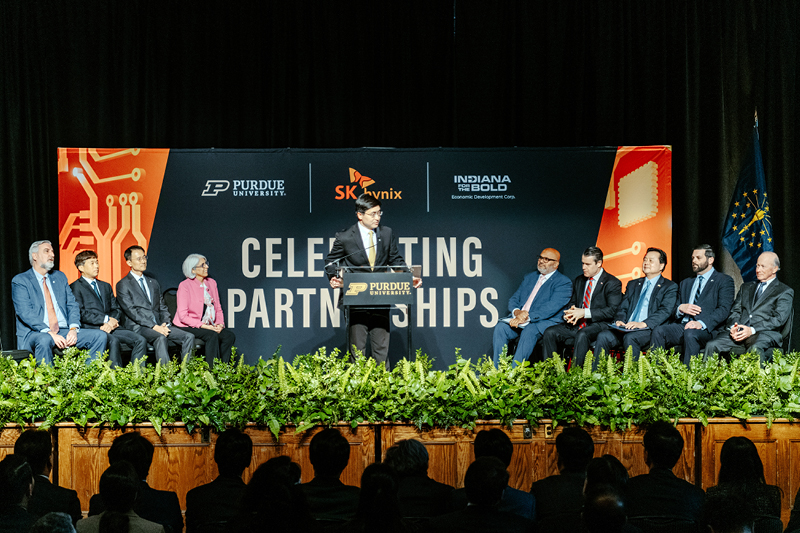
South Korean chipmaker SK Hynix plans to invest almost $4bn in an advanced packaging, fabrication, and R&D facility for AI chips at Purdue University in Indiana.
Its chief executive Kwak Noh-Jung said the project would “lay the foundation for a silicon heartland, a semiconductor ecosystem centred in the Midwest Triangle”.
He added that it would “create local, high-paying jobs and produce AI memory chips with unmatched capabilities, so that America can onshore more of its critical chip supply chain”.
Indiana governor Eric Holcomb and South Korea’s ambassador to the US, Hyundong Cho, attended the signing of the investment agreement yesterday in West Lafayette.
The facility will produce next-generation high-bandwidth memory chips, known in the trade as HBMs. These are a component of the graphic processing units that train AI systems such as ChatGPT. The company plans to begin operations in the second half of 2028.
A number of other companies have opened facilities in Purdue’s Research Park in West Lafayette. Biotech company Bayer, and engineer Rolls-Royce and Saab are among those with offices.
The factory is part of America’s move away from globalisation to making more strategically important products like AI chips at home.
In 1990, the US produced nearly 40% of the world’s semiconductors. But after manufacturing moved to Southeast Asia and China, the US share fell to 12%.
The move to “onshore” manufacturing began under the Trump administration and continued with Biden, notably in the CHIPS and Science Act.
CHIPS is an acronym for Creating Helpful Incentives to Produce Semiconductors for America Act.
It made $280bn of federal funding available to support the research, development and production of semiconductors.
Further reading:










